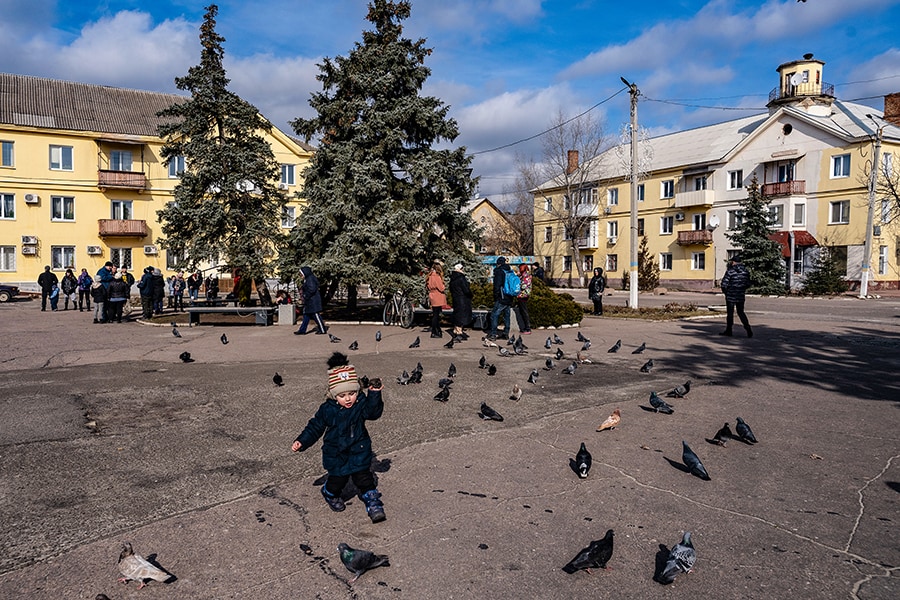
Shchastya: How Ukrainian town called 'Happiness' became the saddest place on Earth
Shchastya means "happiness" in Ukrainian, but in recent days the town has been one of the saddest places on Earth, and it is poised to get a whole lot worse
 A child plays with pigeons as residents charged their phones off public solar panels in Shchastya, eastern Ukraine, Wednesday, Feb. 23, 2022. Shchastya’s largely Russian-speaking and supporting population, its proximity to the front, and the presence of a strategic coal plant lead some analysts to suggest that it may become the stepping off point for a Russian invasion. (Lynsey Addario/The New York Times)
A child plays with pigeons as residents charged their phones off public solar panels in Shchastya, eastern Ukraine, Wednesday, Feb. 23, 2022. Shchastya’s largely Russian-speaking and supporting population, its proximity to the front, and the presence of a strategic coal plant lead some analysts to suggest that it may become the stepping off point for a Russian invasion. (Lynsey Addario/The New York Times)
SHCHASTYA, Ukraine — A drunk sat on a bench, swaying. A few older women, bundled against a biting wind, scurried from a grocery store, clutching plastic bags. Otherwise, the streets of Shchastya were deserted, while the thud of mortar and artillery fire reverberated through town.
Shchastya means “happiness” in Ukrainian, but in recent days the town has been one of the saddest places on earth, and it is poised to get a whole lot worse.
With its largely Russian-speaking and Russia-backing population, its proximity to the front lines in eastern Ukraine and the presence of a strategic electrical generating plant, it has been particularly vulnerable to attack by separatist forces lurking on the far bank of the river running through town.
That has led military analysts and Ukrainian officials to suggest that Shchastya may well emerge as the stepping off point for a Russia's invasion of Ukraine, an offensive originating in the separatist areas that Moscow recognized as independent states on Monday.
The mayor, Oleksandr Bunets, stood outside city hall on Wednesday, smoking a cigarette and surveying the desultory scene. The day before, Shchastya had taken the heaviest shelling in the region, and fighting continued Wednesday between the government and Russian-backed separatist fighters.
©2019 New York Times News Service







